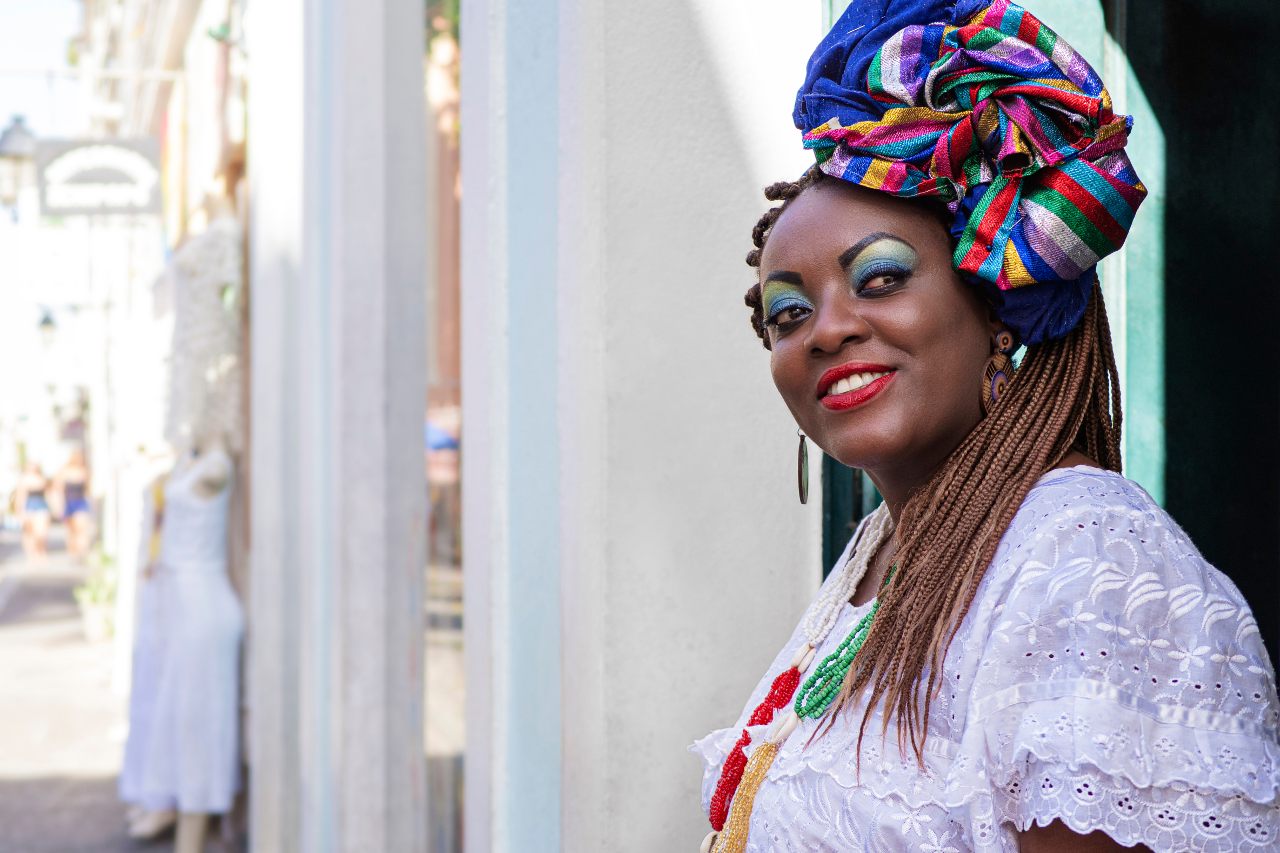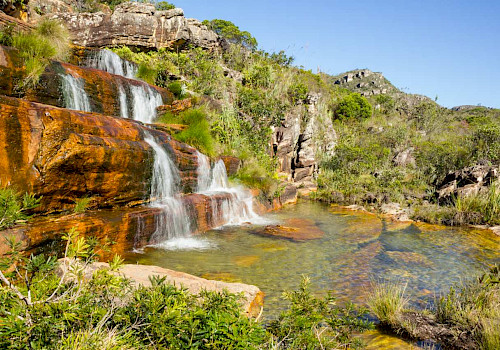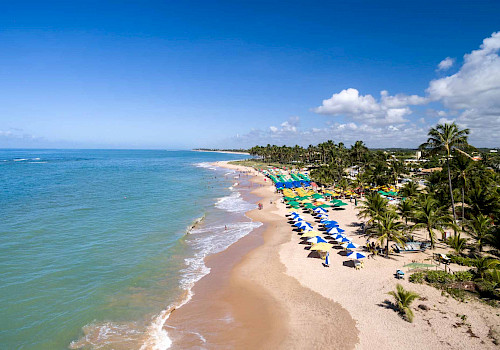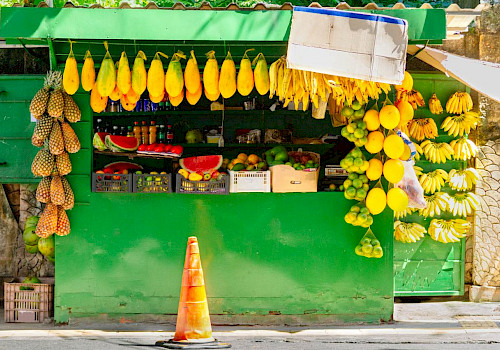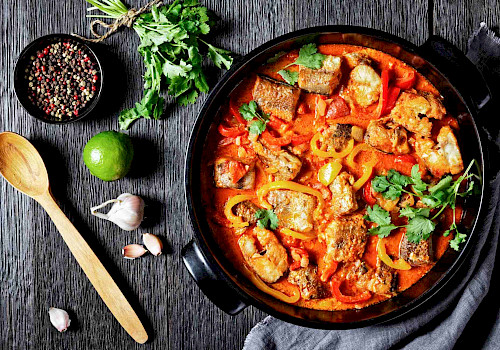

October 3, 2023
Located in the eastern part of Brazil, Bahia is one of the most famous state in the country. The state gets its name from the Portuguese word for bay, ‘bahia’ and its capital, Salvador de Bahia is a bustling hub full of culture and art.
Originally the capital of Brazil when the Portuguese arrived in 1549, Salvador de Bahia is home to a rich and vibrant history. Now the fourth biggest city in Brazil after Brasilia, Rio de Janeiro and Sao Paulo there is a great mixture of attractions and things to do. The city is known for its incredible diversity within its music, cuisine and dance culture. This is due to the fact that historically, Salvador was the first slave port in the Americas and the African influence makes it a hub of Afro-Brazilian culture.
Bahia is also a great place to visit if you enjoy the outdoors and nature. The state is known for having some of the best beaches in Brazil and many of the surrounding parks and islands are thriving centres for local and endemic fauna.
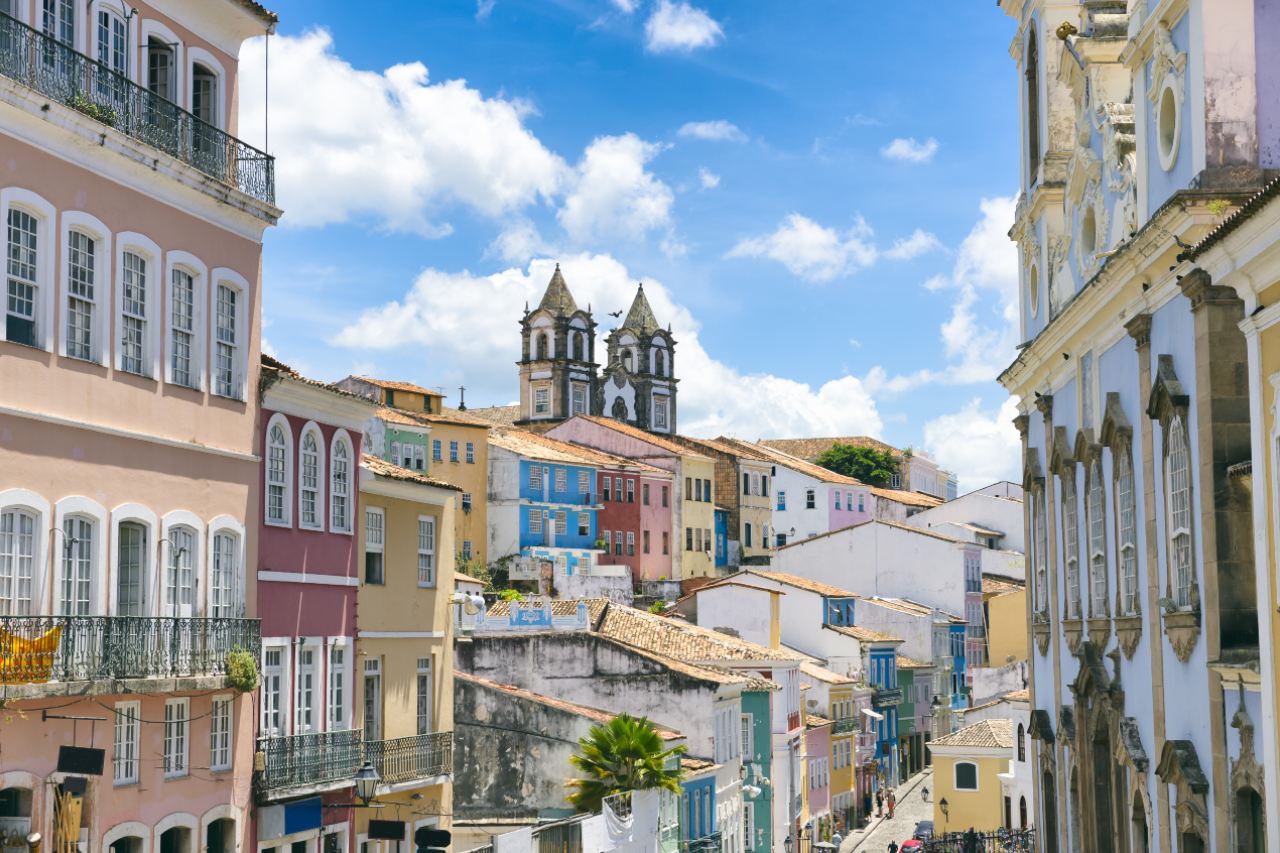
Pelourinho, the historic centre of Salvador
The historic district of Pelourinho in Salvador is renowned for its fantastic colonial architecture that showcases the incredible past of the town. Named a UNESCO World Heritage Site, the monuments found here date back to the 17th and 18th century and tell the story of the Portuguese settlers and the creation of the first slave market on the continent. African slaves were brought to the country to work on sugar plantations or be sold to other traders further north. The name Pelourinho comes from the Portuguese word for ‘pillory’ or ‘whipping post’ as the central plaza was used for the public beatings of enslaved Africans.
Architecture and interior design enthusiasts will find their happiness here with many landmarks to visit such as the Cathedral of Salvador and its incredible Mannerist decorations or the Church and Convent of Sao Francisco that is home to a stunning and intricate Baroque design. For those who enjoy exuberant and theatrical architecture, the Church of Nosso Senior de Bonfim is a must-visit as its Rococo design is incredibly well-preserved.

If you are looking for panoramic views of the city then head to the Elevador Lacerda which was built in 1873 and perfectly captures the separation between the upper and the lower city. The view from the top spans the Bay of All Saints with its incredible blue-green waters.
For those wanting to learn more about the Afro-Brazilian culture, the local museums and art galleries are thriving hot-spots to learn more about African inspired art and how time and history impacted the people. The Museu de Arte da Bahia is the most important museum in the state and perfectly encapsulates the culture and heritage of Bahia. Throughout the year, you will find many cultural events and seminars that tell the story of Bahia and educate visitors to the important history of the country.
Return to nature in Bahia
The most renowned national park in Bahia but also Brazil is the Chapada Diamantina. One of the biggest parks in the country, it stretches to 600 square miles of lush and verdant forest. Outdoor enthusiast will be thrilled with the large number and variety of activities on offer from rafting, canyoning and climbing to hiking and trekking there is no chance to get bored while here.
Surfers will find their happiness in Itacaré, a town situated on the mouth of the Rio de Contas just 70km away from Salvador de Bahia. This town might be small but it is home to 15 beaches and is considered the best place to surf in Bahia. The Boca da Barra break is famous for being the longest one along the coastline with many surf tournaments taking place during the year.
Experience Bahia’s rich culture through song and dance
Capoeira is a martial art dance that originates with the slave trade in Brazil. A mix of martial and dance moves it is usually practiced in pairs to the sound of traditional music. There are many places that you can witness this dance from the central square in Pelourinho to the beaches of Itacaré. It is an impressive sight to see and a great way to learn more about the history brought to Brazil from the African slave trade. Witnessing a capoeira performance is an opportunity that will stay with you for a long time.
When it comes to music, Bahia stands out amongst the rest of the Brazilian states for its incredible African influences. The popular dance music of the region is called axé and comes from the Yoruba word for energy. The rhythm of the music is energetic and upbeat mixed with reggae melodies to create a powerful combination.
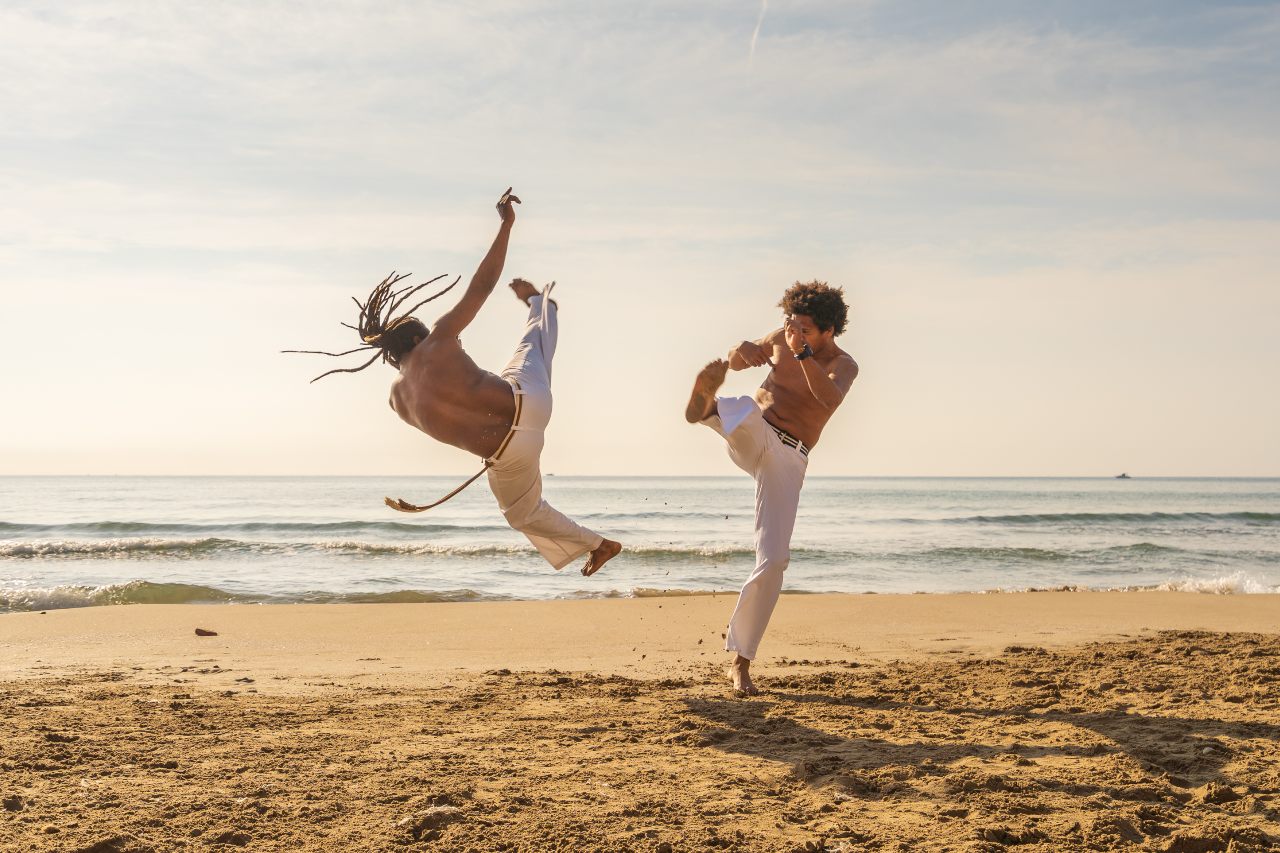
Samba is an equally important part of the culture and is considered to many as the heartbeat of the nation. You can find many schools or dance studios that will teach you the basic steps of the dance so that you can enjoy yourself fully while visiting Brazil. You will find many samba bars in Bahia and it is always great fun to dance the night away amongst other samba aficionados.
Most importantly, the annual Bahian Carnival is one of the most important weeks in the calendar. It covers all of the main traditions from the state such as music, food and religion and showcases the fantastic heritage of Bahia. The carnival lasts for six days and takes places in various different neighbourhoods in Bahia like Pelourinho, Campo Grande and Barra-Ondina track. Big parades wind down the main roads of Salvador de Bahia accompanied by music performances on top of trio elétrico to entertain the crowds that gather. Almost as big as the Carnival in Rio de Janeiro, the Bahia Carnival attracts around 2.5 million people every year.

Taste of the world
Bahian cuisine just like a lot of its culture, is a mixture of global cuisine with a particular focus on Africa and the Caribbean. The food in Bahia is much spicier then in other parts of Brazil and this is due to the fact that they use Pimienta malagueta a chili popular in Brazil that adds a fiery touch to the food it is added to. Many of the dishes in Bahia are cooked with red palm oil, known locally as Azeite de dendê. The oil adds a distinct flavour to their dishes which is particular to the region and can only be found here.
One of the most popular dishes found in Bahia is Savor moqueca. This dish has roots in African cuisine which makes it the perfect food to showcase the region. A rich fish stew, it is made with coconut milk, azeite de dendê and red and green peppers. The dish usually takes on a rich red colour and is served with rice. A tasty and wholesome meal that will be sure to have your tastebuds tingling.
Take part in a candomblé ceremony
Developed in Brazil in the 19th century, Candomblé is a religion that takes roots in both West African religions and Roman Catholicism. It is a blending of Yoruba, Fon and Bantu traditional religions brought by African slaves and the Roman Catholic teachings that the Portuguese colonialists brought with them. People who practice candomblé venerated spirits that are known as orixás. A traditional service involves a lot of singing, dancing and drumming as forms of communication with the deities and spirits. The chance to experience a Candomblé ceremony is a great and inspiring way to experience the rich and complex traditions of the Bahian and Afro-Brazilian cultures.

Bahia is a vibrant and fun destination to a explore. A must-do for any trip to Brazil, discovering this region is like taking a trip back in time where you will come into contact with the rich history of this region. You will come back from this Bahia having learnt so much more about the culture of this incredible place.
Do get in touch with us so we can create the perfect trip for you that includes Bahia and all the region has to offer.

